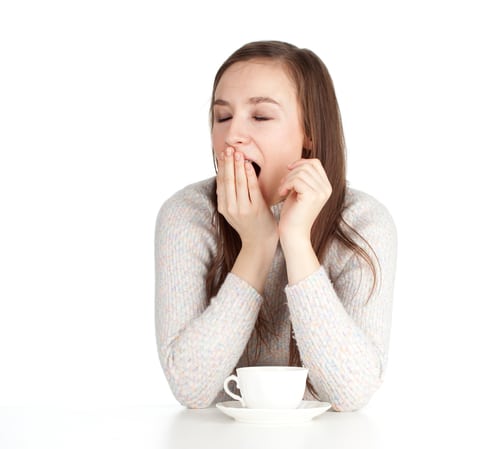
What Causes Sleepiness after a Meal?
This problem is so common there’s a medical term for it – postprandial somnolence. It simply means feeling drowsy after a meal. There are two theories as to what causes sleepiness after eating and both theories partially explain the symptoms.
There are two branches of the nervous system – the sympathetic and parasympathetic. The sympathetic nervous system hypes you up and motivates you to stay active, while the parasympathetic system has the opposite effect. It slows you down and makes you feel sleepy. After you eat a meal, the parasympathetic nervous system dominates over the sympathetic to make it easier for the food you’ve just eaten to digest. As a result, you feel sleepy.
The other hypothesis has to do with the effect eating has on a brain neurotransmitter called serotonin. Serotonin is a brain chemical that has a number of functions, one of which is to bring on sleep. Serotonin is made from an amino acid called tryptophan that’s in some foods, especially foods high in protein. If you eat foods containing tryptophan along with high-glycemic carbohydrates, it causes an insulin spike. This insulin spike makes it easier for tryptophan to cross the blood-brain barrier and get into the brain. When it does, it increases brain serotonin levels, and you become sleepy.
How to Avoid Feeling Sleepy After a Meal
Since eating a meal containing high-glycemic carbohydrates triggers a spike in insulin, avoiding these foods at breakfast and lunch when you want to stay awake will help. When you eat carbs early in the day, choose ones that are high in fiber from whole foods like vegetables and whole grains rather than potatoes, white rice, pasta, desserts and foods made with white flour. This helps to reduce the amount of insulin you secrete after a meal, so you’ll send less tryptophan to the brain to be converted to serotonin.
Another way to avoid feeling sleepy after a meal is to take a brisk walk before getting back to work. A brisk walk activates your sympathetic nervous system so that you’ll feel invigorated rather than drowsy. Make it a practice not to sit around after eating a meal. Keep moving.
Keep the quantity of what you eat in check too. Eating a large meal will only make the problem worse. It’s better to eat 5 small meals a day rather than 3 larger ones if you’re prone towards postprandial somnolence.
The Bottom Line?
Lighten up on the high-glycemic carbs, and you’ll feel less sleepy after eating a meal. Don’t sit or lay down after eating, take a fast walk, and you’ll feel reinvigorated and ready to get back to the task at hand.
References:
American Journal of Clinical Nutrition. 85(2): 426-30.
American Journal of Clinical Nutrition. 77(1): 128-32.
Related Articles By Cathe:
5 Reasons You Feel Sleepy & Less Productive after a Meal & What You Can Do about It
Feeling Sleepy During the Day? It Could Be Your Diet

